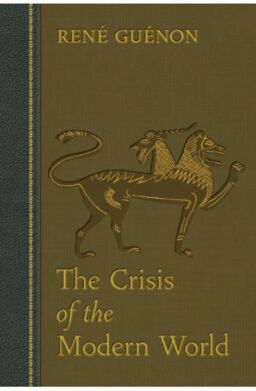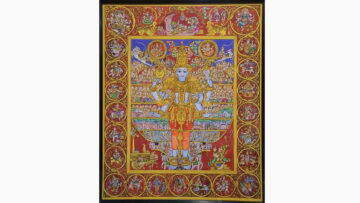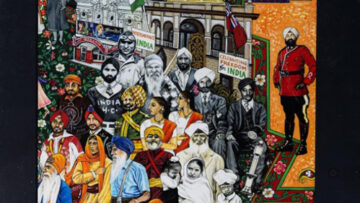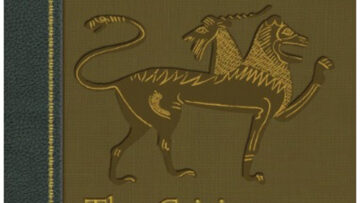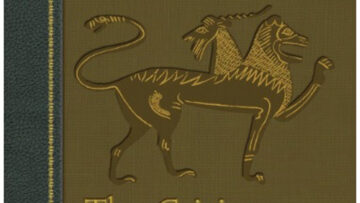Sacred and Profane Science
“Traditional sciences” merely represent changes in the form of an intact metaphysical doctrine. In traditional civilisations, all knowledge derives from or applies to the “core” of intellectual intuition or pure metaphysical doctrine. Relative knowledge in areas such as social institutions and sciences is a dependency, prolongation, or reflection of absolute knowledge. The relative, while not non-existent, occupies its rightful but secondary and subordinate place. There are two radical and mutually incompatible conceptions of science: traditional and modern. Traditional sciences continue to exist in the East today, whereas they were present in the West only during antiquity and the Middle Ages.
Applications such as sciences and social institutions exist within a realm of form and multiplicity. Science, defined not only by its object of study but also by its perspective, encompasses various disciplines. Consequently, different sciences may examine the same phenomena from various angles. This was evident in traditional sciences across different civilisations, which, while comparable, often appeared distinct.
Traditional and modern sciences may appear similar at a superficial level; however, the knowledge they impart can differ significantly. For instance, in the traditional sense, “physics” referred to the science of “nature” or its synonym, “becoming”. In contrast, modern physics pertains exclusively to a specific subdivision of contemporary science. This analytical speciality is unable to encompass nature in its entirety. This limited viewpoint results in a build-up of intricate knowledge that is incomprehensible in its entirety. The plethora of detailed knowledge fails to recognise the higher principle of unity.
The traditional conception ties all sciences as particular applications to the principles. For Aristotle, physics is secondary to metaphysics, with higher principles existing above nature and reflected in its laws. In contrast, the modern conception asserts the independence of various sciences and dismisses anything that transcends them as “unknowable”. The later development of “positivism” or “agnosticism” represents the true starting point of modern science. The nineteenth century, which denied others any knowledge beyond their immediate understanding, marked a further stage in the intellectual decline of the West. Knowledge and sciences became increasingly superficial, consisting of a dispersion of details and sterile analysis.
Western science seeks practical applications. Many conflate science with industry or the engineer. Modern science, deeply entrenched in change and lacking a definitive starting point, reduces itself to probabilities, approximations, or hypothetical constructs. Any coincidental alignment with traditional sciences has no meaning. Ancient teachings require no such validation, and attempting to reconcile two disparate paradigms is futile. Furthermore, modern theories are likely to be transient.
Modern scientific conclusions exist within the realm of hypothesis, while traditional sciences represent the undeniable outcomes of intuitive metaphysical truths. Modern experimentalism operates under the misconception that facts can substantiate a theory. However, various theories invariably fit the same facts, and at times, preconceived theories assist in their elucidation. The experimental sciences focused on the tangible world have progressed due to their strong practical contexts. On the other hand, traditional approaches failed to adequately engage with this form of experimentalism. While we may regard inferior knowledge as legitimate, it becomes problematic when it overshadows all human endeavours. Traditional sciences enabled experimental investigations strictly within the confines of a higher knowledge.
Certain modern sciences can be viewed as the discarded remnants of ancient sciences. It is misleading to assert that astrology and alchemy have evolved into modern astronomy and chemistry, respectively. This change is not evolution but degeneration. Contemporary interpretations have blurred the distinction between astrology and astronomy, which the Greeks considered synonymous. Since then, the material aspects have evolved independently. Today’s perception of ancient astrology may merely be a caricature. Some modern practitioners use statistics and probabilities to interpret astrology, but this methodological approach does not reflect ancient or mediaeval paradigms.
True alchemy, understood as a science of the cosmological and human order through the analogy between the “macrocosm” and the “microcosm”, aimed to access the purely spiritual domain. In contrast, modern chemistry, a corruption and deviation, is incapable of comprehending the ancient symbols and their deeper significance. The alchemists themselves mocked the chaotic experimentation of the “charcoal burners”, who, paradoxically, laid the groundwork for modern chemistry. Today’s restorers of alchemy similarly perpetuate this deviation.
This degeneration is evident across various fields. Contemporary psychology is a direct result of Anglo-Saxon empiricism and the mentality of the eighteenth century. Modern mathematics merely represents the superficial layer of Pythagorean mathematics. The traditional sciences, with their intrinsic intellectual value, seem irretrievably lost. Modern science is a regression of intelligence. In contrast, any traditional science is an extension or secondary branch of pure metaphysical doctrine. Knowledge of a lower order, while legitimate, holds little interest for those possessing knowledge of a higher order.
Proper science should not merely reflect higher knowledge within a domain but also facilitate the attainment of that knowledge itself. Traditional sciences, often referred to as “sacred” sciences, fulfil two complementary roles: first, they serve as applications of doctrine that link various orders of reality into a cohesive synthesis; second, they provide a pathway to higher knowledge.
In contrast, modern or “profane” sciences are incapable of fulfilling either function. The traditional perspective views knowledge as either unfolding (or descending) from foundational principles to practical applications or as an acquisition (or ascending) from lower levels of understanding to higher ones. Sacred science is finally grounded in universal principles, intellectual intuition, and the most direct and profound knowledge.
Sciences attain the status of “sacred” when qualified individuals adapt principal knowledge to suit specific times and contexts while adhering to the strictest traditional orthodoxy. Once established, their teachings may adopt an inverse order, serving as “illustrations” of pure doctrine. The pathways to knowledge across any domain converge at higher levels of understanding. Rarely, one may achieve direct intellectual intuition; however, most cases require a series of preparatory stages that culminate in a gradual ascent towards unity.
The traditional cosmic wheel serves as an apt metaphor: the circumference exists solely by virtue of the centre. Beings at the circumference inevitably follow the radius that leads to the centre. There is a correspondence among all levels of reality; thus, lower-order truths function as symbols and supports for the higher orders. Consequently, any science can transform into a sacred science if higher knowledge remains in view. From the traditional standpoint, every science ultimately attains this unity.
The same is true for the arts; their rules reflect and apply fundamental principles. “Traditional arts” are similarly unfamiliar to the modern West. The “profane realm” is not opposed to a “sacred realm”; rather, it represents a “profane perspective” or ignorance of anything beyond the lowest level of reality. By severing all ties with transcendent truth and supreme wisdom, modernity amasses vain and illusory knowledge that emerges from nothing and leads nowhere. Proud modern science is merely a deviation and a decline from true, sacred, or traditional science. Limited to the material or sensible realm, modern science has forfeited all intellectual value. This approach exemplifies the “rationalist” error of entirely denying intellectual intuition.
Individualism
Individualism represents the negation of any higher principle and the abnormal reduction of all branches of civilisation to purely human elements. It is synonymous with the “humanism” of the Renaissance, and both embody the “profane view”, reflecting the anti-traditional roots of modernity. Modernity, devoid of a basis in a higher principle, can only signify the conclusion of a cyclical period of Kali. Individualism, as the source of the lowest possibilities, is a determining factor in the current decline of the West. These possibilities stand in opposition to all supra-human faculties, including spirituality, intellectual intuition, and metaphysical knowledge.
For modern philosophers, metaphysics consists solely of rational constructs, imaginative hypotheses, and individual conceptions within the realm of nature. This “pseudo-metaphysics” precludes any valid solutions. An irrational passion for research for its own sake engenders futile agitation in both the mental and corporeal domains. The insatiable need for originality often sacrifices even truth, with some inventing a new error rather than reiterating an already expressed truth. This individualism, or intellectual anarchy, particularly prevalent among philosophers, gives rise to many contradictory “systems”.
In traditional civilisations, an individual would scarcely ever claim an idea as original. A true idea belongs to all who can understand it; if false, no credit is due. A true idea cannot be “new”, as truth is not a product of the human mind. Outside of true knowledge, there can only be error. Contemporary pragmatists equate “truth” with practical utility. This modern deviation represents the negation of truth and the intelligence of which truth is the object.
In philosophy, individualism negated intellectual intuition and elevated reason, a purely human and relative faculty, to encompass the entirety of intelligence. Descartes is recognised as the founder of rationalism, which has since become increasingly relegated to mainly practical functions. Individualism, inevitably intertwined with naturalism, denies metaphysics and intellectual intuition as sources of knowledge. This leads to the emergence of either pseudo-metaphysics or the outright impossibility of metaphysics. “Relativism” manifests in various forms, such as the “criticism” of Kant or the “positivism” of Auguste Comte. Reason itself is relative; it engages a relative domain. Thus, “relativism” is a logical consequence of rationalism.
A consistent naturalism, or the philosophies of becoming—which includes evolutionism—eventually turned against rationalism itself, criticising reason as inadequate for addressing change, multiplicity, and the complexity of sensible phenomena. Intelligence is thus diminished to its lowest form, and reason is primarily applied for industrial purposes. The final step in this trajectory is the replacement of “utility” for “truth”. This progression of “profane” philosophy did not occur while a higher knowledge existed; rather, the absence of the latter has become the foundation of all modern philosophy.
Tendencies of a period shape philosophical thought. Earlier ideas and prevailing conceptions of his time influenced Descartes, the originator of modern philosophy. A conspicuous movement in any domain is often more a result than a cause. Similarly, the Renaissance and the Reformation completed the breach with tradition that began in the 14th century, rather than initiating it. The modern era, with its defining individualism, represents the opposition to and negation of the traditional spirit and the higher principles inherent in any traditional civilisation—specifically, intellectual intuition and pure metaphysical doctrine.
The tradition of the West manifested in a specific form – Catholicism. Protestantism can be seen as individualism applied to religion, leading to anarchy and the dissolution of tradition. This individualism suggests a rejection of all spiritual authority that stems from a higher order or anything beyond individual reason. Protestantism denied the Church and permitted private judgement solely based on human reason. Consequently, religion, left open to discussions, divergences, and deviations, evolved into an ever-growing multitude of sects. A Protestant conception that reduces doctrine to almost nothing reflects the same modern and profane tendencies that oppose intellectuality.
As doctrinal agreement became impossible, a secondary degenerative aspect of religion, namely morality, emerged and became evident in contemporary Protestantism. Religion inevitably sank into sentimentalism, particularly in Anglo-Saxon countries. The final stage is a deformity termed “religiosity”, a vague aspiration in which declining religious and philosophical products intermingle, leading “religious experience” to become pragmatic. A limited God became more “advantageous” than an infinite God. Ultimately, modern spiritualism and “pseudo-religions” characteristic of our age emerged.
Protestant moralism has removed all foundational doctrines. Ironically, both “liberal Protestantism” and atheists have subscribed to this degenerated “lay morality”. Protestantism is illogical: it “humanises” religion while retaining the supra-human revelation, yet fails to carry its negations to their logical conclusion. By subjecting revelation to purely human interpretations, Protestantism ultimately disperses into a multiplicity of sects. This trait is emblematic of modernity and science.
Protestantism also gave rise to destructive “criticism”, which “historians of religion” wielded as a weapon against all religion, including itself. Protestantism acknowledged the validity of the Sacred Books but could not preserve the traditional doctrines contained within them, particularly those of the Catholic Church. However, even a restricted elite may not fully grasp the more profound meanings. Modernity has also spawned diffuse and dangerous minds, often unaware of traditional elements.
India does not require a formal organisation to maintain its traditions. Unlike Western religions, India has preserved and transmitted its traditions in distinct ways. Furthermore, the Hindu mind possesses an inherent power that sustains its traditions without requiring an organisation or constitution. The restoration of Western tradition can only occur through engagement with the East. Presently, there is a tendency to “minimise” religion, transforming it into a mediocre performance or custom.
Modern man, rather than aspiring to the truth, seeks to diminish it to his level. Individual opinion and rational order can muster valid arguments on any side of a question when there is no appeal to a higher principle. Consequently, all modern philosophy is built upon quibbles and poorly framed questions, where discussion further entangles or obscures the matter at hand. Each participant, in their attempt to convert the opponent, becomes more entrenched in their opinion. This desire for conversion epitomises the modern Western mindset.
Individualism grants an illusory significance to “great men” and “genius”. In its lowest form, individualism sometimes manifests as judging a man’s work by his private life, as if a connection were to exist between the two. Accompanied by a mania for detail, there is a fixation on the smallest peculiarities of “great men” and an unwarranted belief in the explanatory power of “psycho-physiological” analysis.
The undue emphasis on apologetics serves as evidence of religious decline, characterised by profane discussions and ignorance of doctrines. Those qualified to articulate traditional doctrine need not engage with the “profane” or partake in polemics. Their duty is to expound the doctrine as it is and to denounce error wherever it arises. Their role is not to participate in strife but to remain steadfast in their principles.
Strife belongs to the realm of action. The “unmoved mover” produces and directs movement without becoming involved; knowledge illuminates action; the spiritual guides the temporal; and there exists a universal hierarchy with all in their rightful place. Today, neither individuals nor entities occupy their rightful positions; the spiritual order lacks legitimate authority; those deemed “profane” and inferior challenge the sacred and superior; ignorance restricts the pursuit of wisdom. Error prevails over truth, and humanity replaces the Divine. Individual but fallible reason becomes the ultimate measure of all things.
The Social Chaos
A socio-political viewpoint represents a remote application of fundamental principles. Reconstructing the modern world from this perspective implies prioritising consequences over principles. However, the confusion that permeates the social sphere in modernity cannot be overlooked. In contemporary Western society, individuals do not occupy the ordained positions determined by their inherent nature. Consequently, the traditional concept of caste, which refers to individual nature, has ceased to exist. Special aptitudes arise from one’s nature to fulfil specific functions, yet, as function is no longer governed by legitimate rules, individuals are compelled to accept any work they can obtain, often requiring minimal qualifications.
Modern thought has elevated the denial of individual differences in nature and the rejection of social hierarchies to a misguided principle known as “equality”. True equality cannot exist; two beings cannot simultaneously be distinct and alike. Complete uniformity, such as offering identical education to everyone, is unattainable, as teaching methods and individuals’ capacities to comprehend vary.
Contemporary “egalitarian theories” and widely accepted notions such as “equality”, “progress”, and other “lay dogmas” were first articulated in the eighteenth century, building on pre-existing ideas. These sentiment-driven “false ideas” or “pseudo-ideas” effectively influence the masses. Many contemporary “idols” give rise to the notable phenomenon of “verbalism”, where resonant words create the illusion of genuine thought. The influence of orators and their suggestions resemble that of hypnotists. The negation of true hierarchy results in individuals fulfilling their proper functions only in rare instances and often by chance.
The supposed competence of specialists is illusory. Politicians especially can often succeed despite being completely incompetent. In a democracy, power derives from the majority and emerges from below. Such an attitude naturally excludes real competence and a relative superiority that belongs to a minority. The most compelling argument against democracy (as well as materialism and modern thought) is that the higher cannot arise from the lower, nor can the greater emerge from the lesser. Only a higher-order sanction or spiritual authority can legitimise true power. Otherwise, it becomes a mere counterfeit of power, unjustifiable without principle and leading to disorder. This situation arises when temporal power first becomes independent and then subordinates spiritual authority to serve political ends.
“Democracy”—government by the people for themselves—is an impossibility at any time. It is inherently contradictory for the same individuals to be both rulers and ruled. The remarkable ability of those controlling the modern world lies in convincing people that they are governing themselves. The populace, in turn, accepts this notion and feels flattered. “Universal suffrage” perpetuates this illusion. Laws based on the “opinion of the majority” can be manipulated and modified through suitable suggestions. “Manufacturing opinion” is commonplace. If politicians appear to emerge from the majority and thus share their likeness, their opinions are likely to reflect incompetence.
The opinion of the majority can only be an expression of incompetence, whether stemming from a lack of intelligence or ignorance. “Mass psychology” illustrates that the collective mental reactions of a crowd reflect the lowest elements present. A “criterion of truth” based on “universal consent” determined by majority holds no significance. Majority opinion is inherently limited in space and time. Emotional impulses obstruct reflection and serve as one of the dishonest tricks of politics.
The “law of the highest number” invoked by modern governments is merely the law of matter and brute force. Here, the democratic conception aligns with modern materialism. The supremacy of multiplicity over unity is upheld. In the spiritual realm and universal order, unity occupies the highest position in the hierarchy. Unity is the principle from which all multiplicity emerges.
Weight signifies a downward and compressive tendency, resulting in an ever-increasing limitation of being and multiplicity. This tendency has shaped human activity since the dawn of modernity. The “individualising” tendency is depicted in the Judeo-Christian tradition as the “Fall” of those who diverged from original unity. Multiplicity, devoid of its principle, cannot be reconciled with unity.
In the absence of a higher principle, the social realm becomes merely the arithmetical sum of its individual components. The law that governs such a community is fundamentally based on the principle of the greatest number. The invasive role of the state and the complexity of social institutions may suggest that individualism opposes collectivity. However, such an assumption is misleading. The State, conceived in contemporary terms, represents the masses and thus embodies a form of individualism that negates every supra-individual principle. The conflicts within the social sphere and different forms of democracy are merely between various expressions of individualism. These conflicts continue to escalate due to the lack of any principle capable of unifying the multiplicity.
Ultimately, the democratic idea fundamentally denies the existence of an elite, a truly intellectual or “aristocratic” class. Democracies inherently sacrifice the minority to the majority, valuing quantity over quality and the elite over the masses. The guiding role of a true elite is utterly incompatible with democracy and its egalitarian ideals. Consequently, democracy can only emerge where pure intellectuality no longer prevails, as is the case in the modern world.
Equality is unattainable despite earnest efforts. A curious illogic fabricates false elites to replace the true elite, based on various relative points of superiority of a purely material nature. Wealth holds the greatest significance. Opponents of this state of affairs fail to offer solutions because they too do not appeal to any principle of a higher order.
The restoration of an intellectual elite, currently absent in the West, is the only viable solution. A few isolated and disconnected individuals, lacking genuine knowledge and traditional wisdom, have minimal influence on contemporary perspectives. Those with noble intentions but who fail to recognise that true progress can only stem from foundational principles waste their efforts in relatively superficial pursuits. The genuine elite would not need to intervene overtly; instead, they would influence affairs in a manner that remains largely unnoticed by the populace. The less apparent their influence, the more potent it would become.
…Continued in Part 3
Disclaimer: The opinions expressed in this article belong to the author. Indic Today is neither responsible nor liable for the accuracy, completeness, suitability, or validity of any information in the article.

